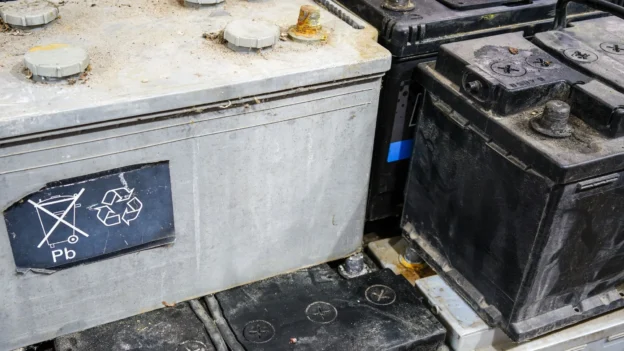In recent research, a team of scientists at Boston College has shown that an acidophilic bacterium, known as Acidithiobacillus ferrooxidans, can feed on waste from used batteries. This finding could transform battery recycling by eliminating the need for toxic chemicals and energy-intensive processes.
The bacterium, commonly found in extremely acidic environments, has the ability to produce protons as part of its metabolism. These protons are essential for extracting materials from the electrodes of spent batteries, such as lithium, cobalt or manganese. Most notably, the microorganism can thrive using materials present in real batteries, such as iron or even stainless steel.
According to the researchers, the use of stainless steel instead of pure iron was even more effective, which is a significant advantage when considering the usual composition of commercial batteries. The bacteria not only adapt to this power supply but also maintain their ability to leach cathode components.
Battery recycling without chemicals and without transportation
Traditionally, battery recycling of batteries requires high temperatures, transportation of hazardous materials and complex processes. This new biological approach eliminates many of those steps, making possible a local, clean and energy-efficient process. The absence of the need for sulfate, revealed in the experiments, further reinforces the viability of the self-sufficient model.
Professor Dunwei Wang, a chemist at Boston College, explained that this strategy allows the bacterium Acidithiobacillus ferrooxidans to use the battery metal itself as a nutrient, while Professor Babak Momeni, an expert in microbial ecology, was in charge of the bacterial culture and its adaptation to different iron sources.
A microbial solution to a global crisis
The growing accumulation of spent batteries represents an environmental threat and a logistical challenge. The possibility of on-site recycling with the help of microorganisms reduces dependence on centralized industrial technologies and opens the way to decentralized solutions in communities, laboratories and local recycling centers.
The researchers are already working on optimizing the efficiency of the process through adaptive evolution of the bacteria. They are also developing prototypes of batteries made from the recovered materials to validate that they offer the same performance as those made from virgin inputs.
This convergence between microbiology and energy technology raises a hopeful vision: using microscopic life as a key tool in the transition to a cleaner and more efficient circular economy.
Source: Boston University via Eureka
Photo: Shutterstock

